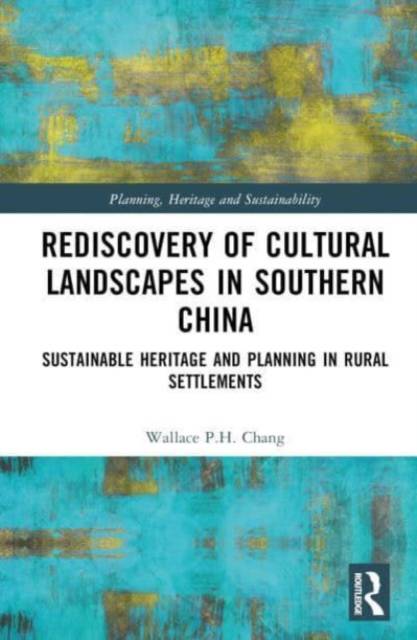
- Afhalen na 1 uur in een winkel met voorraad
- Gratis thuislevering in België vanaf € 30
- Ruim aanbod met 7 miljoen producten
- Afhalen na 1 uur in een winkel met voorraad
- Gratis thuislevering in België vanaf € 30
- Ruim aanbod met 7 miljoen producten
Rediscovery of Cultural Landscapes in Southern China
Sustainable Heritage and Planning in Rural Settlements
Wallace P H ChangOmschrijving
This book investigates the concept of human landscape in rural settlements in Southern China, where communities and their cultural landscapes are facing contemporary challenges following a period of rapid urbanization in the last 50 years.
While metropolitan cities, such as Hong Kong, are experiencing accelerated urban development, underpopulated rural villages are struggling to maintain the cultural heritage of their regions. Rediscovery of Cultural Landscapes in Southern China provides a detailed account into indigenous living cultures in traditional, rural settlements upon natural landscapes. Beginning with an overview of the theoretical framework, the book presents six unique cases, including: Tai O, Yim Tin Tsai, Lai Chi Wo, Nga Tsin Wai, Cangdong, and Meinong, while illustrating a relevant comparison between Hakka and Satoyama landscape systems. The spectrum of theoretical and case analyses allows for a rethinking of the evolving cultural landscape's positioning with valuable heritages in the context of a post-industrial society.
The book is written towards reinterpreting the cultural landscape by conceptualizing the human landscape for scholars, practitioners, and students interested in rural-cultural conservation and revitalization, heritage management, traditional architecture and landscape planning, and urban-rural development.
Specificaties
Betrokkenen
- Auteur(s):
- Uitgeverij:
Inhoud
- Aantal bladzijden:
- 206
- Taal:
- Engels
- Reeks:
Eigenschappen
- Productcode (EAN):
- 9780367466527
- Verschijningsdatum:
- 28/04/2023
- Uitvoering:
- Hardcover
- Formaat:
- Genaaid
- Afmetingen:
- 156 mm x 234 mm
- Gewicht:
- 485 g

Alleen bij Standaard Boekhandel
Beoordelingen
We publiceren alleen reviews die voldoen aan de voorwaarden voor reviews. Bekijk onze voorwaarden voor reviews.











